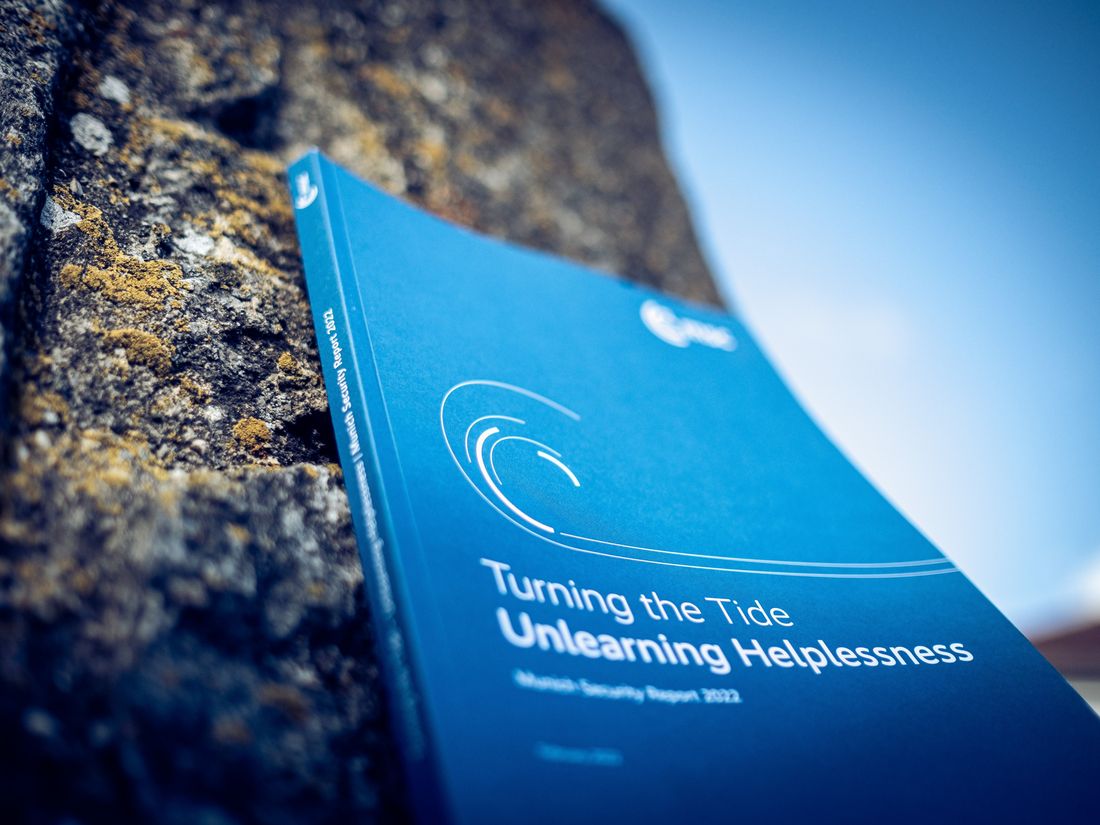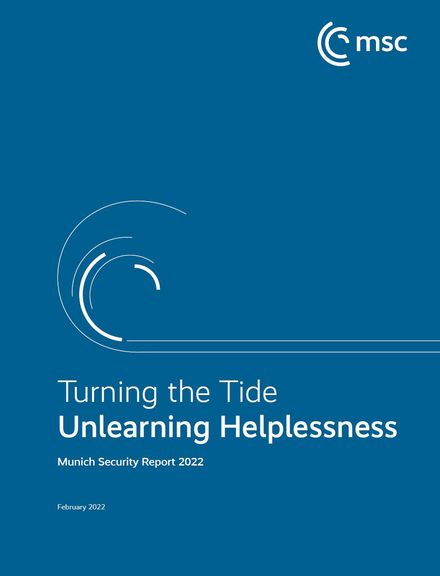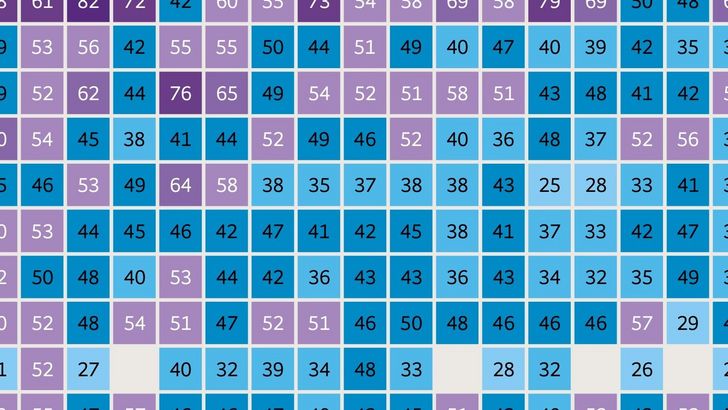

Munich Security Report 2022
Turning the Tide – Unlearning Helplessness
A mounting tide of crises that reinforce each other threatens to overwhelm our societies and political systems. The Munich Security Report 2022 explores the emergence of a sense of “collective helplessness” in the face of a plethora of global challenges and stimulates the debate on how it can best be overcome.
2021 was clearly not a year for geopolitical optimism. Whether it was the seemingly endless coronavirus pandemic, the increasingly tangible threat of climate change, the vexing vulnerabilities of an interconnected world, or rising geopolitical tensions, all these challenges added up to a feeling of a loss of control.
As data from the Munich Security Index 2022 shows, since the last wave of research on risk perceptions in February and March 2021, concern about risk has not only grown among societies in the G7 and BRICS countries. There is also a widespread sense of helplessness in the face of present and looming threats among the twelve countries surveyed. Liberal democracies appear to feel particularly overwhelmed. The new Munich Security Report (MSR) argues that just like people can suffer from “learned helplessness” – a psychological term describing the feeling that nothing one does can effect positive change – societies, too, may come to believe that they are unable to get a grip on the challenges they are facing. This belief, the report warns, may turn into a self-fulfilling prophecy, and prevent the world from addressing the most important crises before it is too late.
The 2022 edition of the Munich Security Report covers security challenges in Afghanistan, the Sahel region, the Horn of Africa, and Eastern Europe, as well as risks posed by dependencies in the supply chains of critical technologies and by growing inequality. While the challenges are real, the report argues, the tools and resources needed to address them are, in fact, available. Transatlantic leaders need to revive the optimism and momentum palpable in the early days of the Biden administration. If they can “unlearn helplessness” and demonstrate that democracies can still deliver, they have a chance to turn the tide.
The report features a range of exclusive and previously unpublished data. For the MSR 2022, the MSC once more cooperated with a number of institutions, including The Armed Conflict Location & Event Data Project (ACLED), the Center for International Peace Operations (ZIF), the Institute for European Environmental Policy (IEEP), the Mercator Institute for China Studies (MERICS), and the Stockholm International Peace Research Institute (SIPRI).
Munich Security Index 2022
Against a rising tide of mutually reinforcing crises, it is important to assess and compare risk perceptions in different parts of the world and track changes over time in the way people view risk. With the Munich Security Index, the MSC and Kekst CNC together have built a new data set to explore citizens’ risk perceptions in the G7 and BRICS nations. By combining five metrics – overall risk, potential damage, expected trajectory, perceived imminence, and feelings of preparedness – the index, underpinned by a survey of 12,000 people globally, provides annual insights into how major countries view risk. The index also enables an evaluation of how risk perceptions change over time.
The Munich Security Index 2022 is part of the MSR 2022 and is available here.
Munich Security Reports
Since its first edition in 2015, the Munich Security Report (MSR) has compiled data, analyses, and maps to illustrate current security challenges. The annual flagship report is traditionally published as a discussion starter for the Munich Security Conference in February and is targeted at an expert audience as well as the interested public. Special editions of the MSR offer deeper analyses of key actors, regions, or issues.
The launch event of the new Munich Security Report 2022 took place on February 14, 2022. You can watch the recording on Youtube via the following link.
More about the Munich Security Report 2022
Figures (excluding Munich Security Index) (8.09 MB)
Figures (Munich Security Index) (8.66 MB)



